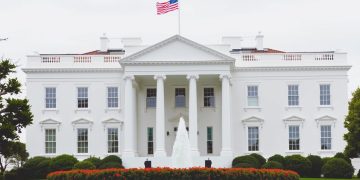Following President Donald Trump’s announcement of a 90-day pause on a contentious tariff plan, U.S. Treasury Secretary Scott Bessent addressed the media to explain the administration’s decision. The announcement came after a sharp downturn in global financial markets and widespread concerns about the broader economic impact of escalating tariffs.
Bessent, a former hedge fund manager, has taken on a more prominent role in communicating the administration’s trade strategy to financial markets. His position within the trade advisory team—alongside figures such as White House trade adviser Peter Navarro and Commerce Secretary Howard Lutnick—has become increasingly central in recent days.
According to sources familiar with internal White House discussions, Bessent had supported a more measured approach to tariffs, in contrast to more aggressive positions reportedly advocated by others within the administration. The 90-day pause on new tariffs, announced in early April, was backed by the full trade team but reflected Bessent’s preference for flexibility and negotiation with trading partners.
The global stock market, which had suffered significant losses following the announcement of reciprocal tariffs, rebounded sharply after the pause was declared. The S&P 500 posted its strongest daily gain since 2008, signaling improved investor sentiment in response to the administration’s adjusted position.
Privately, Bessent is understood to have encouraged greater openness to negotiations with other countries. This shift in approach was reflected in recent public statements and actions by the White House. Bessent and Commerce Secretary Lutnick were reportedly with the president when the pause was drafted and shared with the public.
Internal dynamics within the administration suggest a realignment of influence among trade advisers, with Bessent seen as gaining a larger role. This shift follows rising concerns from financial leaders and lawmakers over the potential economic fallout of aggressive tariff measures.
In response to mounting criticism, Bessent traveled to Florida to meet with the president and later returned to Washington to help shape the administration’s messaging to the financial community. Officials indicated that the Treasury Secretary emphasized the importance of highlighting a willingness to engage in trade negotiations and form tailored agreements with key partners.
This messaging has been reflected in recent White House statements, including a directive for Bessent and U.S. Trade Representative Jamieson Greer to begin talks with Japan.
While Bessent’s role appears to have expanded, sources note that internal differences remain within the administration’s trade team. Messaging between the Treasury and the White House has not always been fully aligned, with differing interpretations of the rationale behind the 90-day pause emerging in subsequent public statements.
The administration’s next steps in trade negotiations will be closely watched by markets and global stakeholders amid continued uncertainty over the future direction of U.S. trade policy.
Discover the latest in supply chain logistics news on The Supply Chain Report. Free international trade tools are available at ADAMftd.com.
#TariffPolicy #USChinaTrade #TradeNegotiations #GlobalMarkets #EconomicUncertainty #InternationalTrade #TradeLeadership #TariffsAndDuties #FinancialMarkets #GlobalTradePolicy















